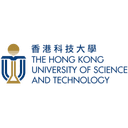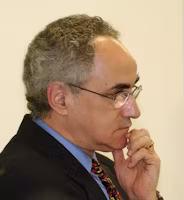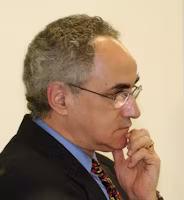Explore China's global engagement since 1978. Analyze its foreign policy, economic ties, and global impact.
Explore China's global engagement since 1978. Analyze its foreign policy, economic ties, and global impact.
This course examines China's engagement with the world from 1978 to the present, focusing on its opening-up policy and its growing global influence. Students will analyze China's changing relations with major powers, its regional dynamics, and its global search for resources and talent. The curriculum covers China's economic opening, its decision to join the WTO, and its evolving foreign policy. It also explores China's energy diplomacy, talent acquisition strategies, and its impact on the global order. Through case studies and expert discussions, learners gain insights into China's complex role in international affairs and its implications for global politics and economics.
4.7
(128 ratings)
11,401 already enrolled
Instructors:
English
What you'll learn
Understand the factors that led to China's opening to the world from 1978-2000
Analyze China's changing relations with major powers and regions since 2000
Examine China's global search for energy and resources and its impact on foreign policy
Understand China's strategies for acquiring global talent and technology
Analyze the role of domestic politics and leadership in shaping China's foreign policy
Evaluate the implications of China's rise for the global order and international relations
Skills you'll gain
This course includes:
7.05 Hours PreRecorded video
6 assignments
Access on Mobile, Tablet, Desktop
FullTime access
Shareable certificate
Closed caption
Get a Completion Certificate
Share your certificate with prospective employers and your professional network on LinkedIn.
Provided by

Top companies offer this course to their employees
Top companies provide this course to enhance their employees' skills, ensuring they excel in handling complex projects and drive organizational success.





There are 6 modules in this course
This course provides a comprehensive examination of China's engagement with the world from 1978 to the present. It begins with an analysis of China's opening to the outside world, exploring the factors that influenced this decision and its impact on China's internal development. The curriculum then covers China's changing relations with major powers and regions, including the United States, Japan, Russia, and ASEAN countries. Students will learn about China's global search for energy and resources, examining case studies of its energy diplomacy with countries like Iran, Angola, and Australia. The course also delves into China's strategies for acquiring global talent and technology, including policies like the "1000 Talents Program" and reforms in academia and research institutions. Throughout the modules, learners will engage with theoretical frameworks from international relations and political economy to analyze China's behavior and its implications for the global order. The course concludes with a panel discussion featuring experts on China's rise and its impact on the world.
Orientation and Module 1: China's Opening to the Outside World, 1978-2000
Module 1 · 2 Hours to complete
China's Changing Relations with the World, 2000-2016
Module 2 · 2 Hours to complete
China's Global Search for Energy and Resources
Module 3 · 2 Hours to complete
China's Global Search for Talent and Technology, 1978-2016
Module 4 · 2 Hours to complete
China's Rise and the World: A Panel Discussion
Module 5 · 2 Hours to complete
Final Exam and Course Evaluation
Module 6 · 1 Hours to complete
Fee Structure
Payment options
Financial Aid
Instructor
Expert in Chinese Politics and Transnational Relations at HKUST
David Zweig is Professor Emeritus of the Division of Social Science and Director of the Center on China’s Transnational Relations at The Hong Kong University of Science and Technology (HKUST). With over 30 years of experience teaching Chinese politics and various courses on China and the World, he has made significant contributions to the field. Zweig earned his PhD from The University of Michigan and was a Harvard postdoctoral fellow from 1984 to 1986. He teaches undergraduates and graduate students in the School of Humanities and Social Sciences, as well as in HKUST’s highly regarded EMBA program.
Testimonials
Testimonials and success stories are a testament to the quality of this program and its impact on your career and learning journey. Be the first to help others make an informed decision by sharing your review of the course.
Frequently asked questions
Below are some of the most commonly asked questions about this course. We aim to provide clear and concise answers to help you better understand the course content, structure, and any other relevant information. If you have any additional questions or if your question is not listed here, please don't hesitate to reach out to our support team for further assistance.



